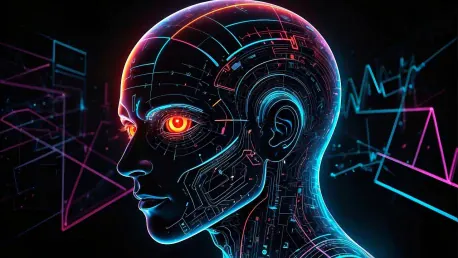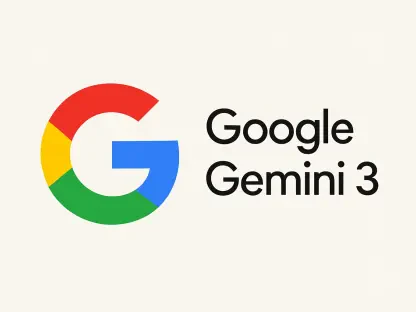Generative AI technologies, such as ChatGPT and Runway, have the potential to drastically change the way we interact with and perceive reality by producing highly realistic texts, images, and videos. This technology, while fostering innovation and creativity, also poses significant risks, particularly in the realm of geopolitics. An article by Shiran Mlamdovsky Somech explores these dual-edged implications with a focus on Israel’s unique position in this technological landscape.
The Transformative Power of Generative AI
Generative AI technologies like ChatGPT and Runway can generate content that blurs the line between reality and fiction. This capability opens up unprecedented opportunities for creative expression and innovation. However, the potential for these tools to rewrite history and manipulate narratives cannot be understated. In the wrong hands, these technologies can be weaponized to spread disinformation and propaganda on a massive scale.
Geopolitical Risks and Disinformation
The dramatic rise of AI-driven disinformation is one of the most concerning aspects of this technology. Malicious actors can easily produce misleading content to destabilize political landscapes and spread propaganda. Countries like Iran, Russia, and China have been known to use AI to further their geopolitical agendas, posing a significant threat to global political stability. The ease with which fake news and altered realities can be disseminated has increased the potency of these strategies.
Antisemitism and Historical Memory
One of the devastating consequences of generative AI is its use in fueling antisemitism and extremist views, which poses a direct threat to Israel’s security. A recent UNESCO report, in collaboration with the World Jewish Congress, highlights that generative AI can jeopardize the preservation of crucial historical memories, such as the Holocaust. The rapid spread of AI-generated fake content distorts historical narratives, and this distortion is especially troubling among younger generations, who predominantly rely on digital sources for information.
Strategic Implications for Israel
Israel finds itself in a uniquely vulnerable position given its volatile regional context and ongoing conflicts. This vulnerability makes the country particularly susceptible to AI-driven disinformation campaigns. However, Israel’s advanced technological capabilities in AI offer a crucial tool for countering misinformation and enhancing national security. By leveraging these technologies, Israel can develop sophisticated mechanisms to detect and neutralize false information, thereby safeguarding its stability.
Regulation and Collaborative Responses
The article calls for a balanced approach that integrates technological advancement with ecosystem creation and global cooperation to mitigate the risks of generative AI. Developing stringent regulations, advanced AI tools for detecting fake content, and educational programs to raise awareness about disinformation are essential steps. By adopting these strategies, stakeholders can work together to ensure the responsible use of AI technologies.
Israel’s Role in Defending Democracy
Israel’s technological prowess positions it as a global leader in using AI to protect democratic values. The country’s experience and advancements in AI can serve as a model for other nations looking to combat the threats posed by generative AI. Collaborative efforts among governments, international organizations, tech companies, and civil society are crucial in crafting comprehensive responses to these challenges.
Overarching Trends
There is a growing consensus on the need to balance the benefits of generative AI technologies with stringent regulatory measures to prevent their misuse. The increasing reliance on digital information sources underscores the necessity for accurate and reliable content, which is vital for maintaining historical integrity. Moreover, international cooperation and collective action are essential to counter AI-driven geopolitical threats effectively.
Main Findings
Generative AI presents both significant risks and opportunities in the geopolitical context. The rapid generation of fake content can destabilize political systems and distort historical narratives. With its advanced AI capabilities, Israel is well-positioned to counter these threats and protect its national security. A collaborative and regulated approach is vital for safeguarding democratic values and ensuring the responsible use of AI technologies.
Conclusion
Generative AI technologies, such as ChatGPT and Runway, are revolutionizing how we interact with and perceive reality. These advanced tools can create highly realistic texts, images, and videos, which opens up new frontiers for innovation and creativity. However, this technology also carries significant risks, particularly in the field of geopolitics. The ability to generate convincing digital content can be weaponized, influencing public opinion, spreading misinformation, and destabilizing political landscapes.
An article by Shiran Mlamdovsky Somech delves into these dual-edged implications, paying special attention to Israel’s unique position in this evolving technological landscape. Israel is known for its robust tech industry and innovative spirit, making it a notable player in the development and application of generative AI. However, this also makes Israel a potential target and a significant actor in the global discourse on how to balance the benefits of generative AI technology with its inherent risks. The article urges stakeholders to consider both the opportunities and the dangers posed by this powerful technology, advocating for responsible use and robust safeguards to prevent misuse in geopolitical contexts.









